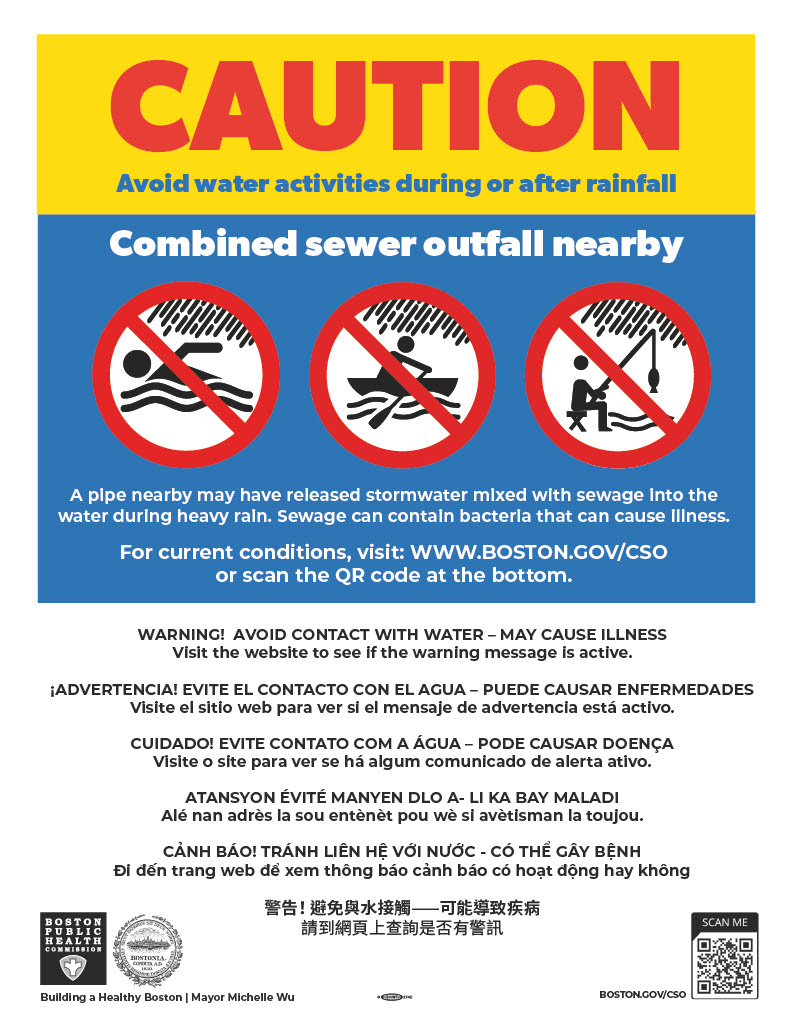Public Health Warning Related to Recent Sewage Discharge
BOSTON – JULY 26, 2023 – The following is a public health warning related to a recent sewage discharge, also known as a combined sewer overflow (CSO). State regulations require local public health departments to provide notice to the public when these discharges may create a risk to public health, including when a discharge lasts for more than two hours.
Boston Water and Sewer Commission Outflow BOS070, located in the Fort Point Channel in South Boston, experienced a discharge or overflow starting on Tuesday, July 25 at 3:40pm, creating a potential public health risk. The overflow ended at 5:50pm on July 25 and this advisory will expire 48 hours after the overflow has ended. Several other discharges shorter than the two-hour threshold have also occurred. Note that these data are preliminary and may be revised. Check the Massachusetts Water Resources Authority website here and the Boston Water and Sewer Commission here for current updates. This event impacts the waters of the Fort Point Channel and Inner Harbor.
Additionally, Boston Water and Sewer Commission Outflow BOS009 located in East Boston discharging to the Upper Inner Harbor near Jefferies point, is experiencing a discharge that began at 5:10am and is ongoing.
Other discharges shorter than the two-hour threshold have also occurred. Note that these data are preliminary and may be revised. Check the Massachusetts Water Resources Authority website here and the Boston Water and Sewer Commission here for current updates. This event may potentially affect waters in Boston Inner Harbor.
The public is advised to avoid contact with affected water bodies for at least 48 hours after a sewage discharge or overflow, during rainstorms, and for 48 hours after rainstorms end, due to increased health risks from bacteria or other pollutants associated with urban stormwater runoff and discharges of untreated or partially treated wastewater.
A combined sewer overflow occurs when a large storm overwhelms the combined sewerage system causing rainwater to mix with wastewater and discharge to a nearby water body. This prevents sewage backups into homes and businesses.
More information about CSOs and public health is available at www.boston.gov/cso.
###


